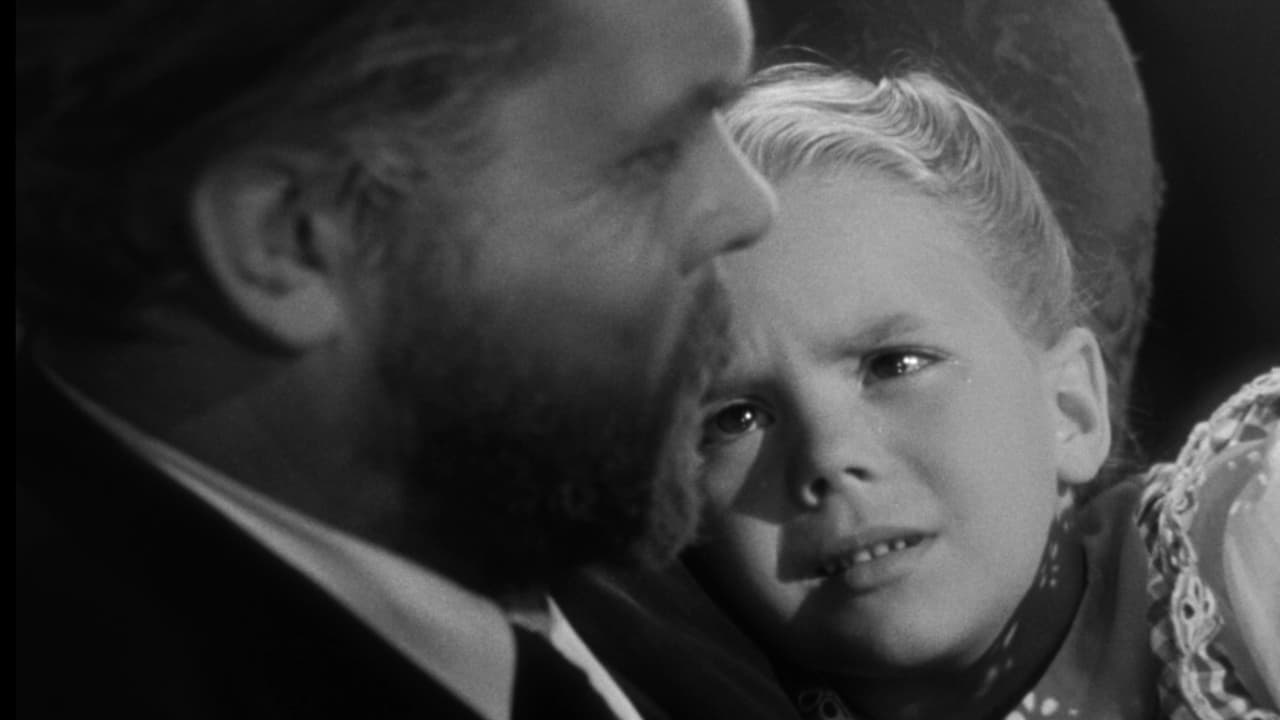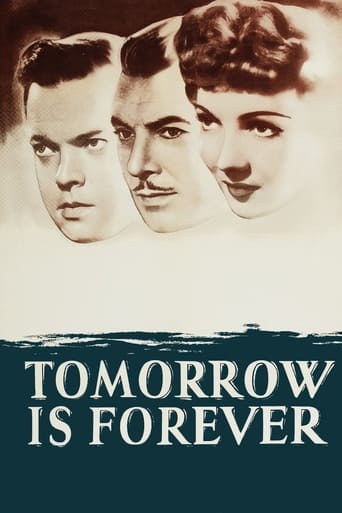

My brother, Joe, joined the Marines right after Pearl Harbor, as an underage boy with false papers. So did his cousin. Now it's over seventy years later and for the first time I realize the anguish of my mother and all mothers when their sons went to war. Claudette Colbert stole my heart as she made me understand what my mother, and all mothers then and today, must have been going through when their sons (and now their daughters go to war). I was 3 1/2 years old in 1942, and so during the war, while he was in the South Pacific, I heard my mother's stories about 'Brother Joe,' that she told so that I would understand that I had a brother and he would eventually come home and live with us. Natalie Wood is a wonderful surprise as a tiny war orphan, perhaps eight years old; Orson Welles was at the top of his form, but Claudette Colbert was the brightest star of this film.This is not an anti-war film, it's much more a 'why we must go to war film.' There's a lot of philosophy buried in the script, but it never slows the film. Warning, bring at least two handkerchiefs to "Tomorrow is Forever".
... View MoreSharp, well-produced variation on the frequently filmed "Enoch Arden" plot. Herein, Claudette Colbert (as Elizabeth MacDonald) is informed that husband Orson Welles (as John Andrew MacDonald) is a Great War causality. Ms. Colbert is devastated, and pregnant with his son, who grows up to be Richard Long (as John "Drew" Andrew). Colbert marries comforting boss George Brent (as Lawrence "Larry" Hamilton); and, they have a happy life. But, first husband Welles really didn't die - he was only badly wounded. After two decades, Welles goes home - but, he has a surgically altered face, and walks with a limp.Directed by Irving Pichel, Colbert and Welles are great fun to watch; with their fine performances, you can read some ambiguity into the film's ultimately flawed storyline (which has to do with recognition). Mr. Long is quite impressive, in his film debut; he had a long, successful, and far too under-appreciated television career. Eight-year-old Natalie Wood is cute as Welles' foster daughter "Margaret". If only it were more plausible... ******* Tomorrow Is Forever (1/18/46) Irving Pichel ~ Claudette Colbert, Orson Welles, Richard Long
... View MoreThis movie is sad beyond words, beyond tears. Of course,the unstated truth is that Elizabeth is right, by joining the RAF, Drew is probably sealing his fate. A different but equally sad truth is stated when Elizabeth accuses Erik of being, perhaps, the one who killed John and he concurs because he did kill John rather than returning a lesser, perhaps unmanned, husband. The horror of war and the fact that it is sometimes necessary for us to go on. Sad beyond words, beyond tears and beyond bearing. Some historians believe that war is man's natural state of being and that would give this old movie currency beyond the coincidence of whether a big war is happening when the movie is viewed. It is always true and always sad, sad beyond words.
... View MoreI am stunned to see the vast majority of commentators describe this great film as "typical," "sentimental," and "melodramatic." That is to completely overlook the various philosophical and psychological aspects of the movie. Isolationism. Pacifism. Opposition to global hegemony and tyranny. All of these are at the essence of the dialog and the story. The need for humans to deny the temptation to live in the past and to embrace the future is the core of the movie - in addition to its TITLE. Reason must overcome emotionalism.That is made especially apparent in the scene where Kessler (Orson Welles) implicitly compares Mrs. Hamilton (Claudette Colbert) to his young charge, Margaret (Natalie Wood). While Mrs. Hamilton lost her husband on another continent, the Nazis murdered Margaret's parents right before her eyes. She is terrified by a "popper" because it causes her to "relive" the sound of bullets, the smell of gunpowder and the sight of blood - her parents' blood. Kessler gently coaxes Margaret into pulling the string on a second "popper" to prove that she doesn't need to be a victim of her fears. She can learn that it is not dangerous, but a mere "toy." She can overcome.The climactic scene between Kessler and Mrs. Hamilton is equally fabulous. The tension steadily mounts as Mrs. Hamilton presses Kessler to admit that he is her husband. Until his direct denial, the dialog is so sublime that it makes sense whether delivered by the woman's lost husband or by "Mr. Kessler." But it is not sentimental. To the contrary, Kessler's powerful philosophical arguments and psychological insights compel Mrs. Hamilton to reassess her life and come to the realization that it has been, is, and promises to be good. To throw that away for a memory would be sheer sentimental folly. "Embrace the good life you have" is the very clear message.Generally the acting is superb, however, in particular this is possibly Orson Welles' finest performance. There are no obvious double-takes or overly-long stares that are dead give-aways in most films that deal with a character with a hidden identity. This is a fabulously subtle performance. Welles' makeup is a little obvious and theatrical, but is not a distraction.In an incredible - and incredibly overlooked - performance, Natalie Wood convincingly portrays a young Austrian girl who speaks German as her native tongue, has lost both parents to Nazi violence and is suddenly thrust into a strange new country. Her performance is one of the best juvenile performances in all American cinema. The Max Steiner score is also very good, although I wish it had been a little more sub rosa. Just turning down the volume of the score to make it a little more subtle would have improved the film a little. However, it beautifully captures the mood of each scene.This movie has layers upon layers. It contains paradoxes and ironies that are profound enough for real reflection. The characters provide profound contrasts in philosophy and psychology. The device of having a husband apparently die (but in actuality refuse to return home because of his "broken" condition) provides ample opportunity for sentimentality. But that device is merely the springboard for a much richer exploration of the meaning of life and our place in the world. To fail to recognize this is to minimize this fabulous film and miss its point.
... View More